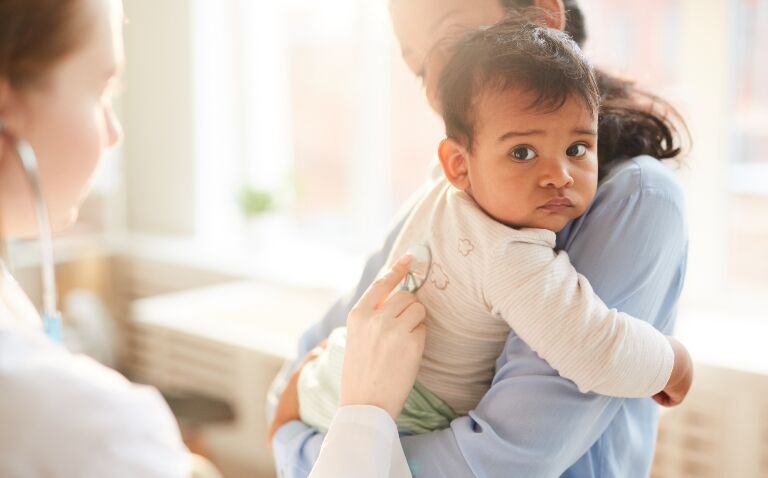Declining health among children under five should be urgently addressed, according to alarming evidence from The Academy of Medical Sciences that suggests the UK is ‘presiding over a crisis in child health’ and failing many of its children.
High rates of infant mortality, obesity and tooth decay are highlighted in the report, entitled ‘Prioritising early childhood to promote the nation’s health, wellbeing and prosperity‘, outlining a gathering crisis across the early years of children’s lives.
Early years health, which starts in pre-conception and goes through pregnancy and the first five years of life, is often overlooked in current policy but is crucial for laying the foundations for lifelong mental and physical health.
The authors are calling on the Government to take urgent action to prioritise the health of babies and young children across the UK. They warn that inaction could cost the Government at least £16bn a year and ‘condemn’ children to a life of poorer health.
The report was written by child health experts from across the UK and chaired by Professor Helen Minnis, professor of child and adolescent psychiatry at the University of Glasgow, and Professor Sir Andrew Pollard, Ashall Professor of infection and immunity and director of the Oxford Vaccine Group, Department of Paediatrics, University of Oxford.
It includes perspectives from parents and carers with lived experience examining the positive impact of intervening in the early years on the health and future of the nation.
Child health in the UK has stalled in recent years. Infant survival rates are worse than in 60% of similar countries, and the demand for children’s mental health services has surged, the report highlights.
Current figures show over a fifth of five-year-old children are overweight or obese, and a quarter are affected by tooth decay. In addition, vaccination rates have plunged below World Health Organization safety thresholds, leading to the possibility of disease outbreaks such as measles.
External factors, such as the Covid-19 pandemic and the cost of living crisis, have exacerbated the situation and increased health inequalities. The number of children living in extreme poverty tripled between 2019 and 2022, and those living in the most deprived areas are more likely to be affected by conditions such as obesity.
The report findings highlight the urgent need for early years health interventions and more research into children’s health to help identify future interventions.
The authors would like to see a unified approach from the Government so that policies and resources can be coordinated, alongside an improvement in the collection and access to child health data to enable research to feed effectively into policies.
The experts also point to a decline in the workforce responsible for child and family health, including paediatricians, and call for this to be addressed so that effective services can be prioritised and delivered in the early years.
In addition, the report highlights the need to ensure that a diverse range of voices of children, parents and carers are represented in developing early years policies and interventions.
Professor Minnis said: ‘Every child has the right to a safe and healthy childhood. It is shameful that the UK is failing to provide this. Child deaths are rising, infant survival lags behind comparable countries, and preventable physical and mental health issues plague our youngest citizens.
‘The science is clear – we are betraying our children. Unless the health of babies and young children is urgently prioritised, we condemn many to a life of poorer health and lost potential. The time to act is now.’
The data in the report suggests that policymakers can positively benefit the future health of the UK by frontloading investment into early years healthcare.
The Royal College of Paediatrics and Child Health (RCPCH) also welcomed the review.
Dr Mike McKean, vice president for health policy at the RCPCH, said: ‘This report provides alarming evidence that the UK is failing too many of its children. We are presiding over a crisis in child health that demands urgent action.
‘As paediatricians, we witness daily the devastating consequences of these systemic failures. Without transformative intervention on child health, we condemn generations to a poorer future. The time for excuses is over – Government must act decisively to address this crisis.’
A version of this article was originally published by our sister publication Nursing in Practice.










